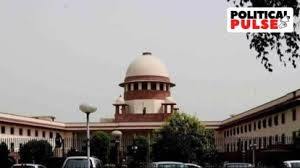Decode Politics: Why the Supreme Court Stepped into the V-C Appointment Imbroglio in Bengal

09.07.2024: The ongoing tussle between the Trinamool Congress (TMC) government and the Governor of West Bengal over the appointment of vice-chancellors (V-Cs) in state universities has escalated to the Supreme Court. The apex court’s involvement marks a significant development in this prolonged conflict.
Supreme Court’s Intervention
In a rare move, the Supreme Court appointed former Chief Justice of India U U Lalit to lead a search-cum-selection committee to oversee the V-C appointments in West Bengal’s state-run universities. This decision came after an ordinance and a Calcutta High Court order failed to resolve the issue between the state government and the Governor.
Formation of the Committee
A bench of Justices Surya Kant and Ujjal Bhuyan directed that a six-member committee be constituted within two weeks. This committee will prepare a panel of three names in alphabetical order for each university’s V-C appointment. The Supreme Court emphasized that both the state and the Governor’s office agreed on the committee’s formation. The committee’s recommendations, endorsed by the chairperson, will be presented to the Chief Minister.
Background of the Conflict
The dispute began when the Mamata Banerjee-led TMC government clashed with Governor C V Ananda Bose over the functioning of state-run universities. The conflict intensified when the state government asked V-Cs whose tenures had ended to resign. In response, Bose extended the tenures of some interim V-Cs to buy time for forming search committees for full-term V-C appointments.
Legislative Changes and Legal Battles
In May 2023, the state government promulgated The West Bengal University Laws (Amendment) Ordinance, 2023. This ordinance altered the composition of the search committees, increasing them from three to five members, including representatives from the Chief Minister, the education department, the state Higher Education Council, the University Grants Commission (UGC), and the Governor.
A Public Interest Litigation (PIL) filed in the Calcutta High Court challenged the ordinance. While the matter was pending, the Governor appointed interim V-Cs for 11 state universities in June 2023. The High Court upheld the Governor’s right to make these appointments as the ex-officio Chancellor of the universities.
Notable Appointments and Reactions
In July 2023, Governor Bose appointed former Karnataka High Court Chief Justice Subhro Kamal Mukherjee as the interim V-C of Rabindra Bharati University. This appointment, along with others from non-academic backgrounds, led to further tensions between the Governor and the TMC government. State Education Minister Bratya Basu criticized these decisions as “illegal,” sparking a heated exchange between the two sides.
Supreme Court’s Mediation Efforts
In October 2023, the Supreme Court stayed the emoluments of the newly appointed interim V-Cs and urged the Governor and the Chief Minister to resolve their differences amicably. The court emphasized the need for reconciliation in the interest of educational institutions and students’ futures. Despite the Supreme Court’s advice, the deadlock continued, prompting the court to consider intervening directly.
The Supreme Court’s decision to appoint a search-cum-selection committee led by former Chief Justice U U Lalit represents a significant step towards resolving the V-C appointment impasse in West Bengal. This intervention aims to bring stability and transparency to the process, ensuring that educational institutions in the state can function smoothly and effectively.
